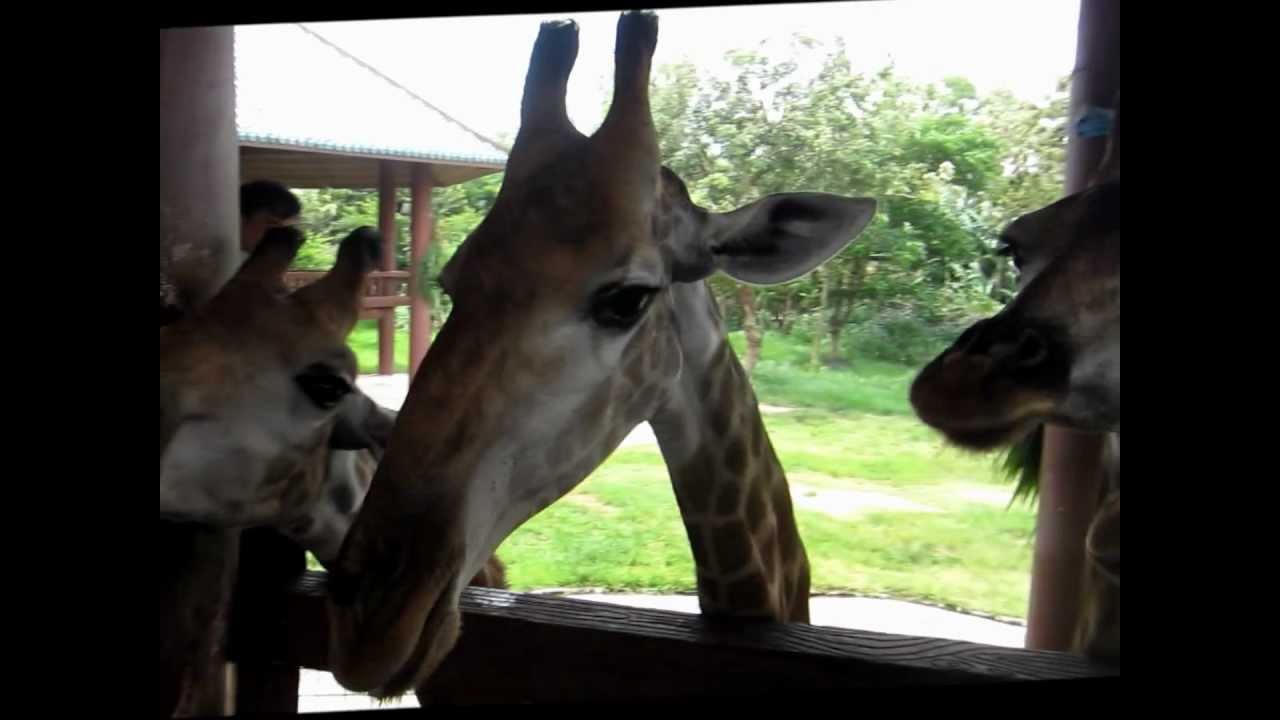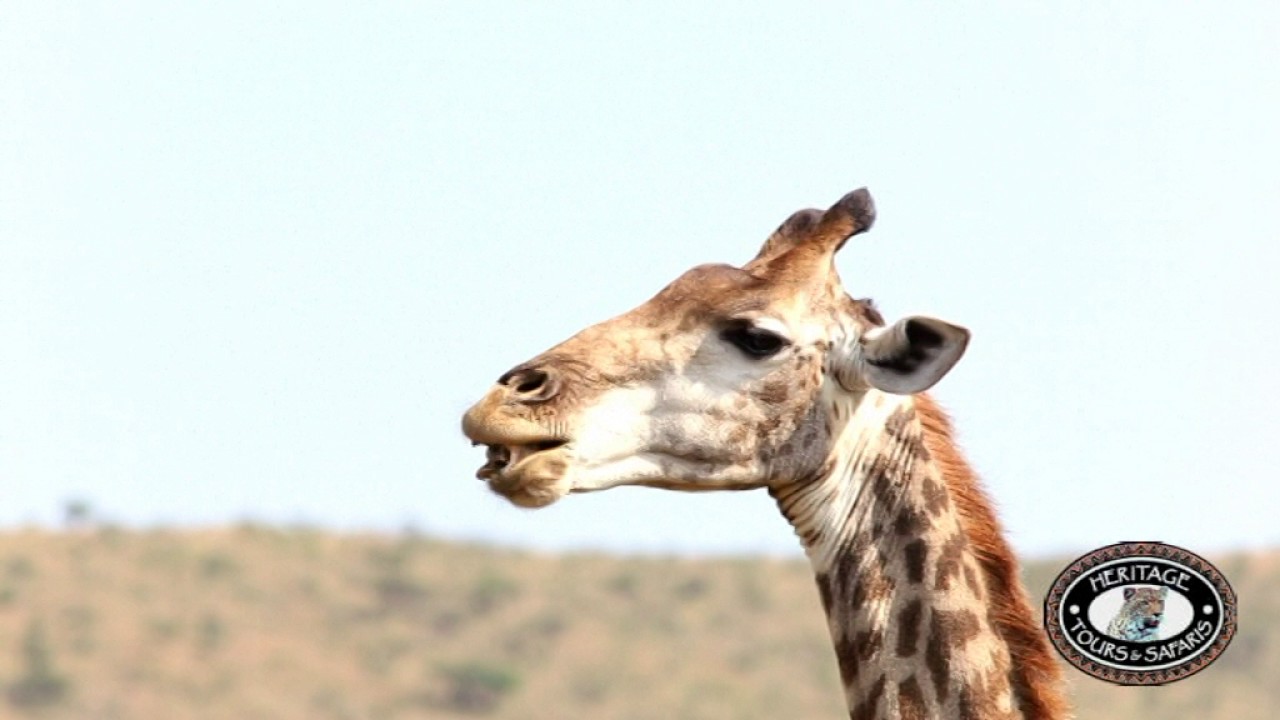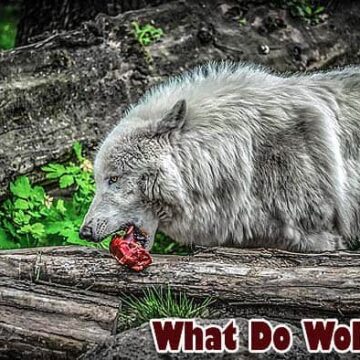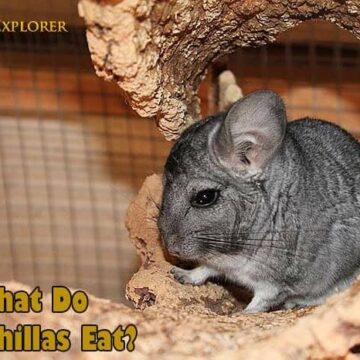What Do Giraffes Eat?
Giraffes are the world’s tallest terrestrial animals. Explore what do giraffes eat, giraffes diet by types, what eats giraffes, & all giraffe diet-related info.

Giraffes are large ruminants. These animals are the world’s tallest terrestrial animals. These spectacular animals tend to dine on the leaves and twigs of plants, such as the acacia trees, mimosa, and wild apricot trees. Giraffes also feed on fruits.
Jump to:
What Do Giraffes Eat?
| The Southern Giraffe (Giraffa giraffa) | Leaves, shoots of trees, flowers, acacia bark, pods, and seeds. This giraffe rarely feeds on grass. |
| The Masai Giraffe (Giraffa tippelskirchi) | Leaves of the acacia tree, twigs, and a wide array of seasonal fruits found within their habitat. |
| The Reticulated Giraffe (Giraffa reticulata) | Seed pods, leaves, and fruits of their favorite trees, which include acacia, wild apricot, and mimosa. |
| The Northern Giraffe (Giraffa camelopardalis) | Shoots, grains, nuts, leaves, flowers, and fruits. They also eat soil to obtain minerals. |
![]()
Types of Giraffes and Their Habitats
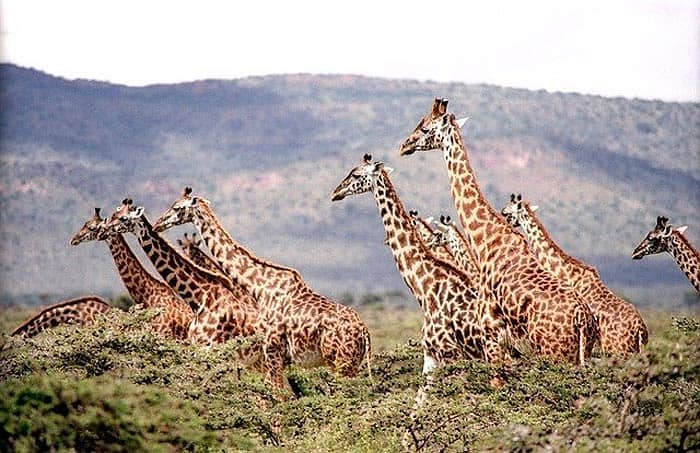
In most studies, only one species or kind of Giraffe was recognized, which is the Giraffa Camelopardalis and 9 of its subspecies, which include:
- The Angolan Giraffe
- Masai Giraffe
- Kordofan Giraffe
- Reticulated Giraffe
- The South African Giraffe.
- Nubian Giraffe
- The West African Giraffe.
- Rothschild’s Giraffe
- Thornicroft’s Giraffe
The above classification was based on evaluating the morphology of the giraffes and their geographic ranges, which have recently been rendered obsolete.
A recent study performed by the Senckenberg biodiversity and Climate Research Centre and Giraffe Conservation Foundation focused on performing the first DNA analysis on the significant natural giraffe populations in their African range.
Giraffes’ habitat includes Savannah and woodlands in many African countries such as South Africa, Kenya, Botswana, Zambia, and more.
The findings revealed an updated version of the traditional giraffe taxonomy, and they confirmed that four main types of giraffes exist, and five subspecies.
The four types, including their preferred habitats, are as follows.
What Do Southern Giraffes Eat?
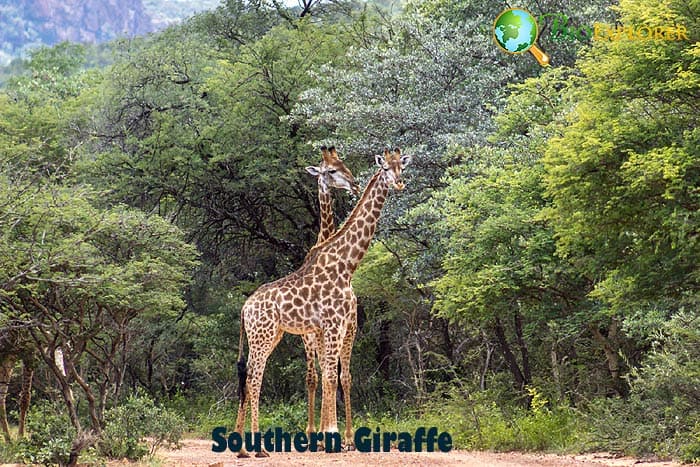
| Kingdom | Order | Family | Genus | Species |
|---|---|---|---|---|
| Animalia | Artiodactyla | Giraffidae | Giraffa | Giraffa giraffa |
The southern giraffe mainly eats the leaves and shoots of trees. Depending on their availability, they also dine on flowers, acacia bark, pods, and seeds. This giraffe rarely feeds on grass.
- The Southern giraffe has two subspecies : the South African giraffe and the Angolan giraffe.
- This giraffe is found in South Africa, Angola, Zimbabwe, Botswana, Zambia, and Mozambique.
- This species is mostly found in these regions’ savannah and woodland areas.
What Do Masai Giraffes Eat?
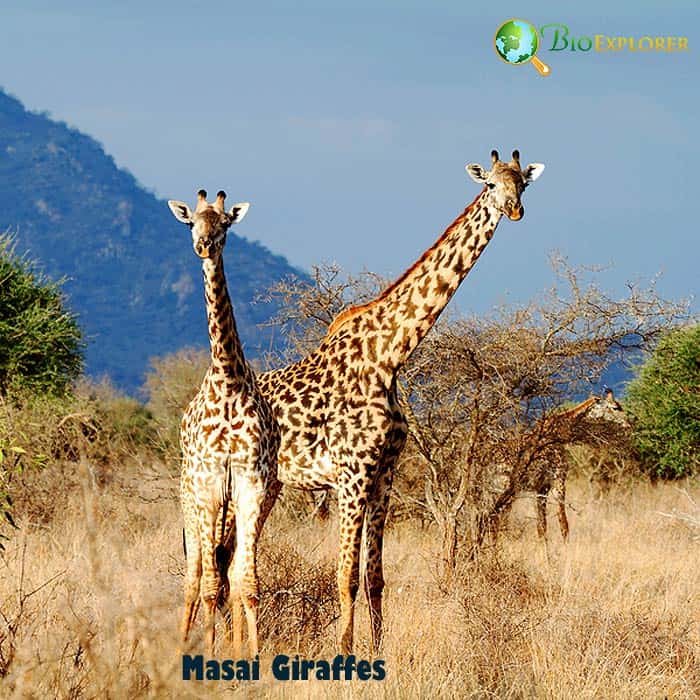
| Kingdom | Order | Family | Genus | Species |
|---|---|---|---|---|
| Animalia | Artiodactyla | Giraffidae | Giraffa | Giraffa tippelskirchi |
Masai Giraffes mainly eat the leaves of the acacia tree. They also eat twigs and various seasonal fruits found within their habitat.
- The declining numbers of this species make it listed as an endangered species.
- The Masai giraffe is widely distributed in the savannahs of the central and southern parts of Kenya.
- This species is also found in the savannah of Tanzania. These species can also be found in limited distribution in Rwanda.
What Do Reticulated Giraffes Eat?

| Kingdom | Order | Family | Genus | Species |
|---|---|---|---|---|
| Animalia | Artiodactyla | Giraffidae | Giraffa | Giraffa reticulata |
The reticulated giraffes feed on seed pods, leaves, and fruits of their favorite trees, which include acacia, wild apricot, and mimosa.
- The reticulated giraffe gets its name from the fact that its red coats are divided by reticulations of white lines, making its appearance somewhat different compared to the other types of giraffes.
- This species is mostly found in the drylands of the Horn of Africa.
What Do the Northern Giraffes Eat?
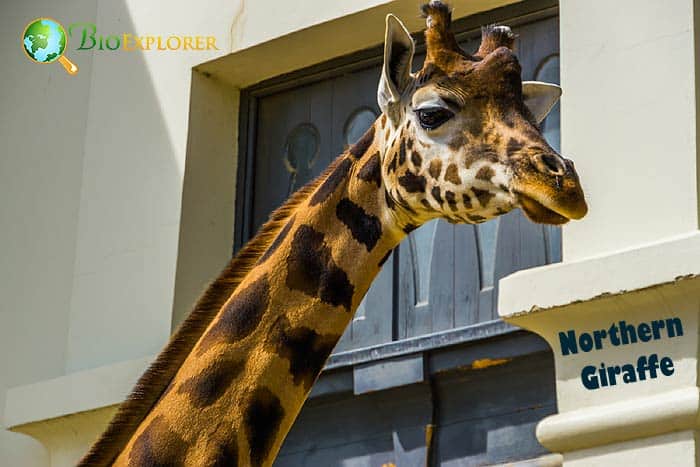
| Kingdom | Order | Family | Genus | Species |
|---|---|---|---|---|
| Animalia | Artiodactyla | Giraffidae | Giraffa | Giraffa camelopardalis |
The Northern Giraffe feeds on shoots, grains, nuts, leaves, flowers, and fruits. They also eat soil to obtain minerals.
- The Northern Giraffe has 3 subspecies: the Kordofan giraffe, the West African giraffe, and the Nubian giraffe.
- This species inhabits open woodlands, grasslands, and savannah of Chad in the North and extends to Niger in the west, Somalia to the East, and some parts of South Africa.
What Do Giraffes Eat in the Savanna?
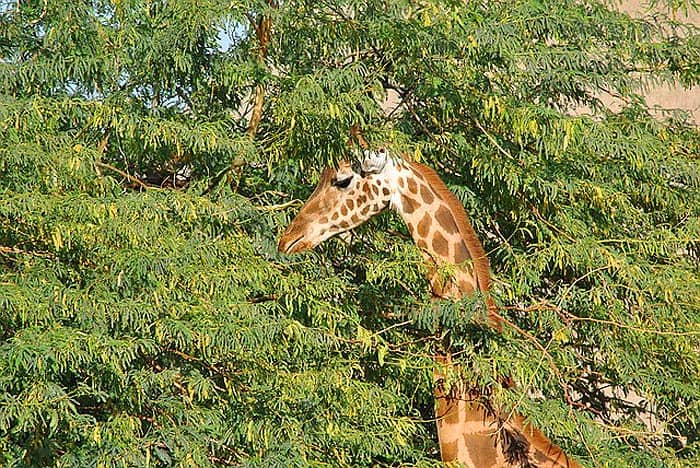
Savanna hosts three different Giraffes species: Southern Giraffes, Masai Giraffes, and Northern Giraffes. These Giraffes in Savannah eat leaves, shoots of trees, flowers, twigs, Acadia trees, seasonal fruits, and even soil.
Do Giraffes Eat Bananas?
In the domesticated environment such as Zoos, Giraffes would eat bananas if offered. However, in the wild, giraffes mostly consume the leaves, Acacia tree twigs, mimosa, wild apricot trees, and fruits found in shrubs.
![]()
What Do Giraffes Drink?
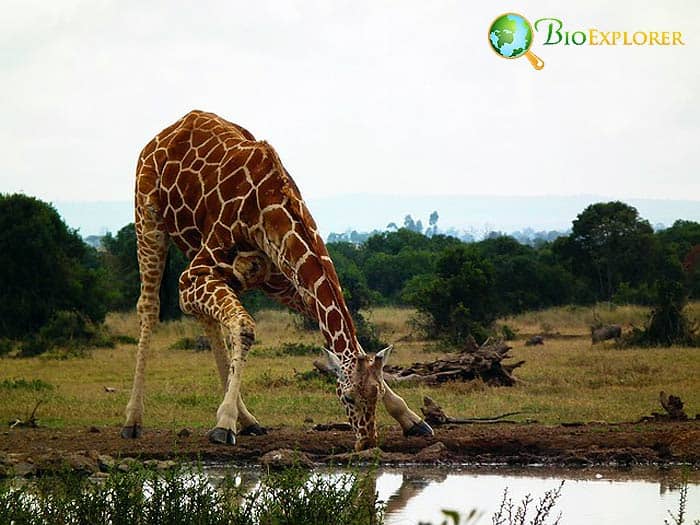
Like many animals, Giraffes need water for hydration and well-being. Since Giraffes are too tall, they must shuffle and spread their front legs to reach for the water on the ground. Especially when these tallest herbivores drink water from the pond or river, they would be vulnerable to crocodile attacks. Giraffes tend to drink water only every few days. However, they do get most of the required water from the plants they consume.
Do Giraffes Eat Bones?
Though giraffes are herbivores, when they lack nutrients from their daily diet or when scarce, they tend to eat bones from dead animals (such as buffalo). By chewing bones, giraffes get the required minerals such as phosphorous and calcium that their body needs. This phenomenon is called osteophagia. Giraffes won’t eat the entire bones but rather chew them for some time until the nutrients are extracted and spit them out.
Note that the same behavior (osteophagy) can be seen in other herbivores, too, namely red deer, wildebeest, antelopes, and camels.
![]()
How Do Giraffes Hunt?
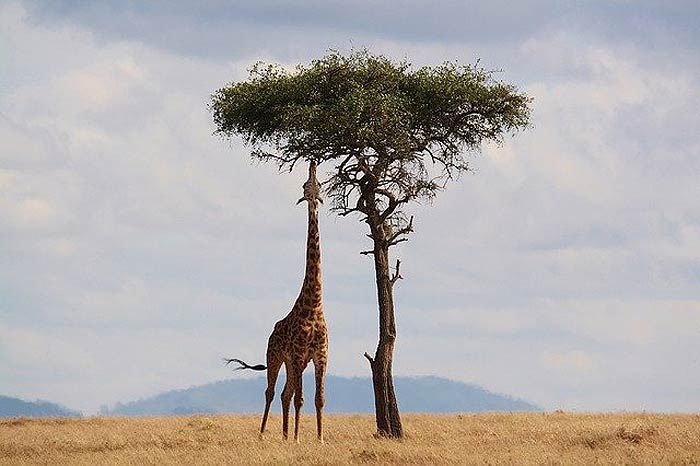
Giraffes do not hunt because they are herbivores, meaning they draw most of their nutrients from consuming plant matter.
- One strange feeding behavior that has been noted in giraffes is that they also feed on bones, an action defined as osteophagy.
- Giraffes routinely engage in osteophagy to provide their bodies with minerals such as calcium and phosphorous, which enrich them.
When Do Giraffes Eat?
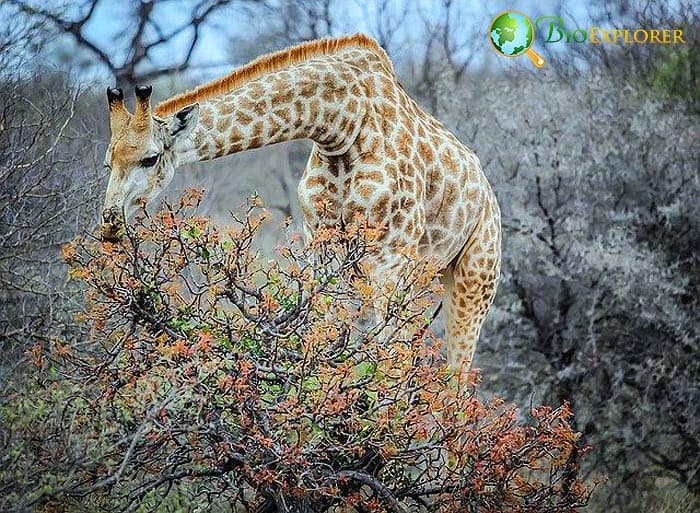
Giraffes are mostly diurnal creatures, feeding during the day and sleeping at night.
How Often Do Giraffes Eat?
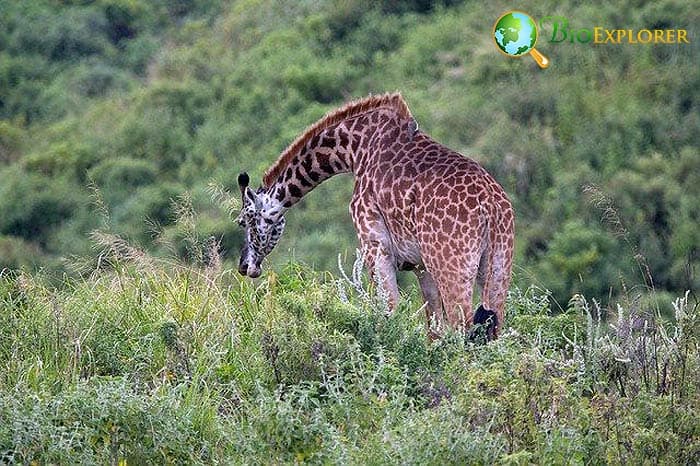
Often, giraffes eat about 75 pounds of food a day. They spend between 16 and 20 hours a day feeding.
What Eats Giraffes?
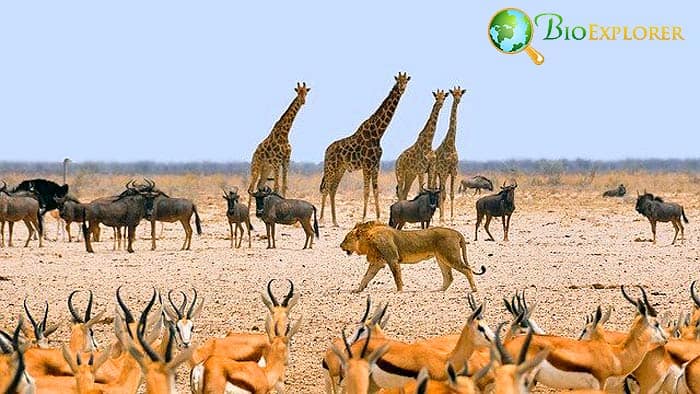
Lions are the most significant predators of giraffes.
- The lions often target the weak or young giraffes, as well as the pregnant ones.
- Giraffes are also predated upon by hyenas and leopards.
- Crocodiles have also been documented to prey on giraffes.
Where Do Giraffes Fit in the Animal Food Chain?
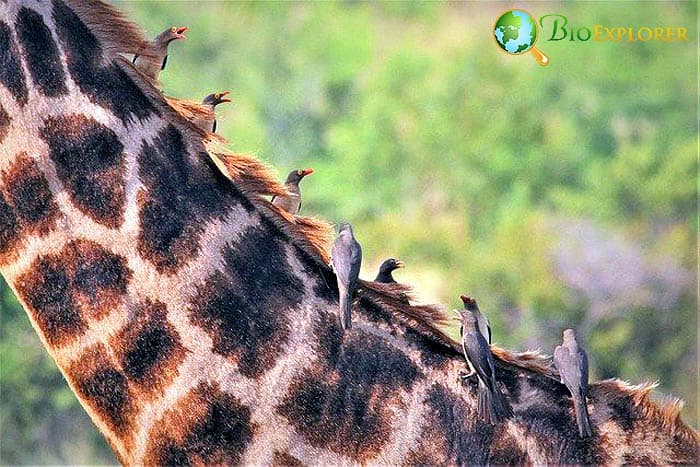
Giraffes play an imperative role in the animal food chain. These organisms are a direct source of nutrition for the animals that prey on them.
- Further, thanks to their mutually beneficial relationship with the birds such as red-billed oxpeckers, giraffes provide an indirect source of nutrition to them.
- These birds feed on the ticks found on the giraffe’s skin.
Frequently Asked Questions
How does the long tongue of Giraffes help them in their diet?
Giraffes use their long, 18-inch (1.8 meters) tongue to reach vegetation that most other animals can’t reach. Moreover, their tongues are tough enough to handle the thorny acacia trees. The giraffes can eat around the thorns and swallow the leaves.
Are Acacia leaves safe for giraffes despite the thorns?
What helps giraffes digest the vegetation they eat?
Giraffes have a multi-chambered stomach that allows them to digest their food in stages. They swallow the leaves first, then regurgitate it back up the throat as a ‘cud’ to chew again before it finally goes to the four compartments of the stomach for digestion. This complex process helps them extract as much nutritional needs as possible from the tough vegetation they consume.
Do giraffes eat different types of vegetation depending on the season?
Yes, their diet can vary depending on the time of year or the region they live in. In the dry season, when green vegetation is scarce, giraffes may consume more dried-out plants, including twigs and bark, that other animals typically avoid.
What do baby giraffes eat?
Baby giraffes, or calves, start by nursing on their mother’s milk. Eventually, within a few weeks, they explore their surroundings and start eating leaves.
When do baby giraffes start eating leaves?
Baby giraffes start eating leaves when they are around 4 weeks old. Though they continue suckling until they are about 9-12 months old, their intake of vegetation gradually increases with their age.
How do mother giraffes feed their calves while still nursing?
Mother giraffes feed their calves directly from their teats. In fact, a newborn giraffe calf, which usually stands about 6 feet (1.8 meters) tall at birth, has no problem reaching its mother’s milk source.
What growth rate does a diet of acacia leaves and mother’s milk allow in baby giraffes?
A diet rich in mother’s milk and acacia leaves allows the calves to grow quickly. Baby giraffes grow about an inch a day – this rapid growth is essential for a young giraffe that needs to keep up with its herd and keep safe from predators.
How much food do giraffes need to eat a day?
While the figures can vary depending on the animal’s age and size, a fully grown giraffe eats up to 30 to 45 kilograms of leaves and twigs daily.
Cite this page
Bio Explorer. (2026, January 3). What Do Giraffes Eat?. https://www.bioexplorer.net/what-do-giraffes-eat.html/

